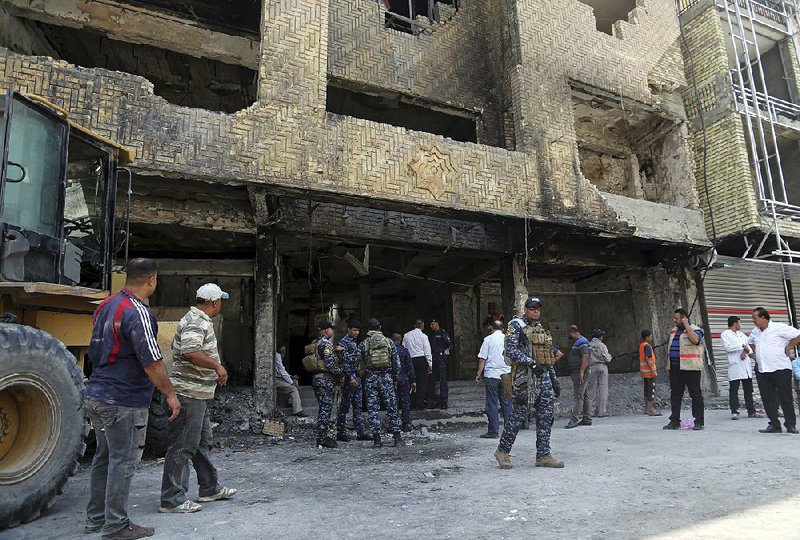BAGHDAD -- Traffic began to file through central Baghdad's busy Karada street on Sunday for the first time in nearly two months after the July 3 attack that killed nearly 300 people.
The street had been sealed off, and within days the shells of the charred buildings around the scene of the blast were covered in death notices. For weeks after the attack, grieving families and loved ones gathered at the site to light candles in the evenings. Others marched in protests.
Baghdad authorities began to sweep all of that away Saturday after a group of Iraqi officials visited the site. By Sunday morning the streets were almost entirely cleared.
"Today we must return to our normal lives and work," said Silwan Walid, a 29-year-old perfume shop owner who works on the street. Walid said watching construction equipment haul off broken glass and charred debris gave him hope for the future.
"Now we feel like life can return to normal again and we can go back to providing our families with a decent living," he said. His shop has been unable to reopen while the site was blocked off.
Three teenage boys walking by the site remembered a friend killed in the blast. He was working at one of the clothing stores in Laith mall. They said they don't want to forget their friend, but seeing the bombed-out buildings in the middle of their neighborhood every day has made it more difficult to move on.
"I don't want to see these shops [like this]," said Yousef Omar, a 13-year-old student. "When I see this destruction, it brings back my sadness like new."
A team of engineers at the site said the reconstruction project would take at least four months. One of the most difficult aspects will be determining which buildings can be restored and which will need to be demolished, said Saleh al-Obeidi, one of the engineers.
The Karada disaster put the Iraqi government under pressure to improve security in the capital and to rein in corruption.
Many of the dead from the July 3 attack survived the explosion but burned to death inside the two neighboring malls due to a lack of emergency exits and insufficient fire-suppression systems -- something critics blamed on a corrupt system allowing building owners to circumvent basic safety standards and regulations.
Earlier this month, a fire at a maternity ward in Baghdad's Yarmouk hospital killed 13 babies. The Ministry of Health said investigators blamed arson for the fire, but other officials said the high death toll was due in part to the lack of fire equipment and safety standards in the building.
In Karada, street sweepers were collecting the last piles of debris Sunday. Ali Ahmed, a clothing shop owner on the street, said this will be the fifth time he's rebuilt his store after it's been damaged or destroyed by explosions. Ahmed is 25 years old.
"I don't know how long I will be able to keep rebuilding my shop like this," he said. "Our dreams cannot be achieved if we're ruled by a government that cannot provide security."
A Section on 08/22/2016

